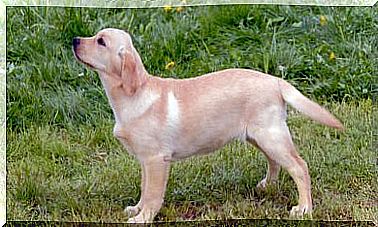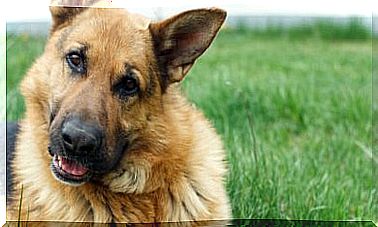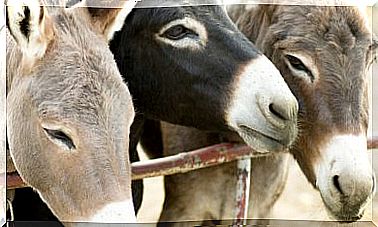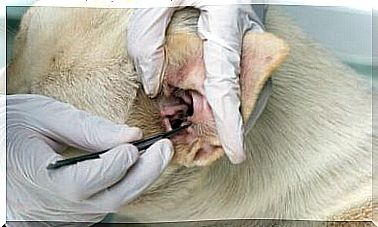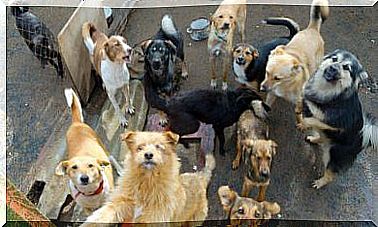Why Do Small Dogs Live Longer?

It is well known that the life expectancy of dogs depends on various factors such as breed or size. It is very important that you know what determines your dog’s longevity, in order to behave accordingly. Remember that each dog has specific needs and that it is the owner’s job to satisfy them in the best possible way. However, it is a curious fact that the size of the dog is inversely proportional to its life expectancy: small dogs age more slowly. In this article we want to talk about why small dogs live longer.
Aging
Aging is a part of the natural biological process of living things. Over time, cells, muscles and tissues deteriorate.
As we age, the body changes and with it also the physiological needs. It is the duty of every responsible owner to respond adequately to the physiological needs of the dog: only in this way will the animal live a healthy and happy life.
You should know that a giant dog will be considered senior from six years of age, a medium-sized dog from ten years and a small dog from twelve to thirteen years.
It is a curious phenomenon. In fact, usually in nature large animals tend to live longer because their organisms are more complex and more efficient. This is especially evident when we compare mammals and birds.

Possible causes
Various researches have been conducted to solve the question of why small dogs live longer, but no definitive answer has been reached and the opinions of scientists are conflicting. However, the hypotheses advanced by the researchers develop around four fundamental points:
They have a different lifestyle
One hypothesis examines the lifestyle of large dogs. Large dogs are more active and heavier than small dogs. Furthermore, large breed dogs are often used as working dogs. Nor should we forget that owners tend to be overly protective of smaller dogs. All of this implies that a large breed dog’s muscles (including the heart), immune system and joints deteriorate sooner.
While this theory appears to be plausible, it is not entirely satisfactory because it does not explain why terrier-like dogs are long-lived despite having an active life.
Heart problems
Another hypothesis starts from the study of the heart of dogs in relation to the size. If taken absolutely, there is no doubt that the size of the heart of large dogs is greater than that of small dogs, but what is interesting is to know whether or not the size of the heart muscle is proportionate to the size of the animal. It seems, in fact, that in proportion, large dogs have a much smaller heart than small dogs. This would explain the deterioration: the heart of large breed dogs has to work much harder to circulate blood.
Predisposition to serious diseases
Disease predisposition is another factor that greatly affects the longevity of dogs. For example, giant breed dogs tend to suffer from joint disorders and muscle aches.
Unfortunately, cancer is also much more common in large dogs, especially bone cancer (osteosarcoma).
The problem of race
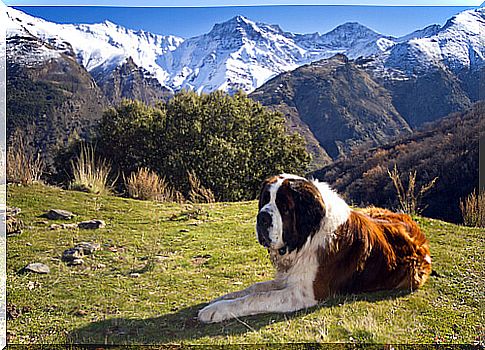
The dog’s ancestor, the wolf, has a size similar to that of a large dog, and in some cases a giant dog. However, wolves can live up to 15 years. Dogs of the same size and weight rarely reach that age. This fact has led to the hypothesis that a perfect size exists for dogs. When we talk about ideal size, we mean the right weight and body. A proportion that would allow the correct functioning of the entire organism of the animal and therefore a greater longevity.
The point is that dogs, and especially purebred dogs, have been selected by humans according to purely aesthetic standards. Through artificial selection, only some physical characteristics have been taken into consideration to the detriment of the animal’s health and longevity, think for example of brachycephalic dogs.
The ideal size would be small or medium (even medium-sized dogs are quite long-lived). However this rule excludes toy dogs, these dogs, on average, live much less.

